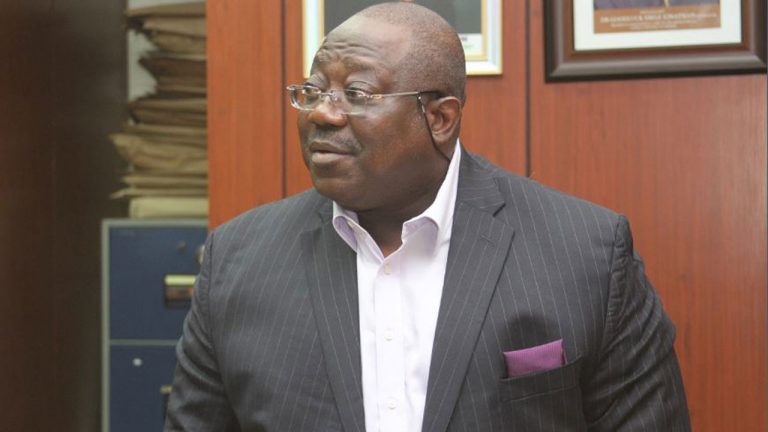Olaopa highlights economists’ role in development

The Chairman of the Federal Civil Service Commission, Prof. Tunji Olaopa, says the country is currently faced with a development crisis that needs not only the input of political leaders to overcome but also that of economists.
Olaopa spoke at the weekend during a courtesy visit by top officials of the Nigerian Economic Society, led by its President, Prof. Adeola Adenikinju of the School of Economics, University of Ibadan.
According to Olaopa, Nigeria is back at a defining stage in its economic policy development that needs the intervention of both political leaders and the “nation’s massive corps of expert-economists and their huge trans-disciplinary intellectual capital.”
He said the existing situation of the country “brings back such historic moments as the Ibadan Conference on National Reconstruction and Development of 1969 convened by the Nigerian Institute of Social and Economic Research, the IMF debate of 1985, the whole dynamics and policy intelligence mining that went into Vision 2010 under General Sanni Abacha, the National Economic Empowerment and Development Strategy of 2003, the NV 2020, and their iterations up unto this moment.”
He noted that over the last 30 years, economists have garnered knowledge that “has helped in the design of policies that bring inflation under control and align exchange rates,” saying that “macroeconomic stability is a basic condition for sustainable economic growth, wealth creation, inclusive development, poverty reduction and job creation.”
Olaopa opined that there has been a big movement from 1985 when the state was dominant through the Washington Consensus period of backing off and allowing the market to dominate, and then towards a re-balancing which gives the state a more proactive role in guiding the economy.
Getting this balance right, according to him, is critical to ensuring a well-functioning economy, especially given the huge potential that public-private partnerships present.
The FCSC chair said President Bola Tinubu had provided leadership sophistication with the national seminal climate for policy conversation “that he has enabled in being not just a listening president, but one who concedes to superior ideas and solutions.”
He disclosed that Tinubu had created “a discursive space that is devoid of the brand of anti-intellectualism that in the past, foreclosed the opportunity of putting policy alternatives side by side, thus enabling the policy process with clear intellectual leeway for choices of the very best options for the country, going forward.”
Olaopa maintained that it was commendable that NISER and the NES had engaged the Central Bank of Nigeria governor in an important conversation.
“This really should be the starting or continuing point if you will, of the thinking process. The Hon Minister of Finance and Coordinating Minister for the Economy has instructively convoked a retreat of all the departments and parastatals in his ministry to deep-think the new eight redefined strategic policy priorities of President Tinubu, just as the FGN Delivery Manager and Special Adviser to the President on Policy Coordination has continued in her efforts to sharpen the performance accountability change management instruments to activate the performance bond signed by the key players in the policy space. I am indeed privileged to have offered expert inputs into all these seminal conversations as a resource person”, he said.
He suggested that the country still has shared responsibility to reinvent good practices of the good old days in government from the 1960s to the mid-70s, stating that there is an “ongoing reform effort to re-professionalise the economists and planners/planning cadre in the federal service.
“The strong professionalism that the National Bureau of Statistics is bringing to bear on the national statistical system is already reversing the old reductionism where Prof. Wolfgang Stolper dismissed Nigeria as a nation that plans without facts.”
Olaopa who noted that the nation needs to do more about building a data culture, however, said that data culture was not just about data collection, but the comprehensiveness and accuracy of the data collected.
He advocated making it mandatory for cross-functional teams to use data to inform their daily tasks and create “data-driven plans, strategies, policies, goals, and objectives.”
“We are determined at the level of the Federal Civil Service Commission, to reinforce this whole dynamic with redoubled drives to beef up the MDAs’ IQ by reinventing meritocracy even in the context of the implementation of the Federal character policy,” he added.